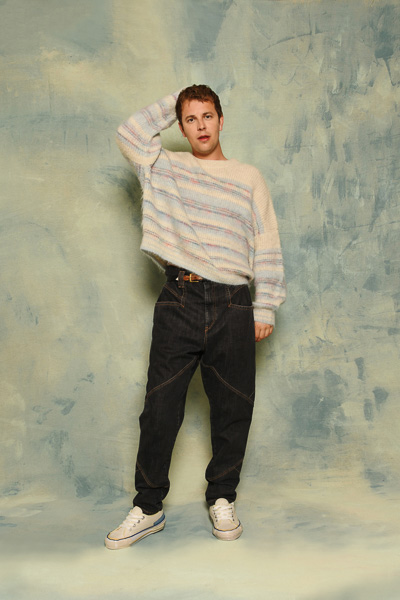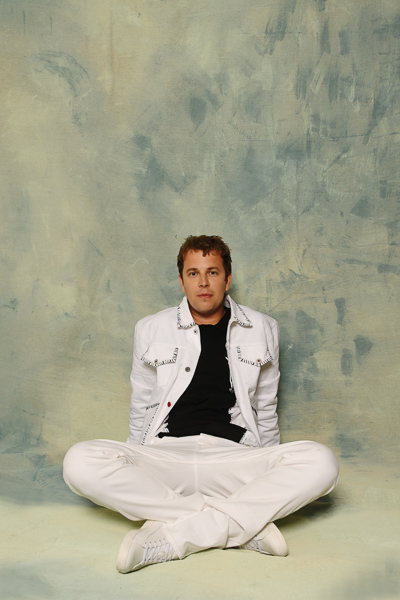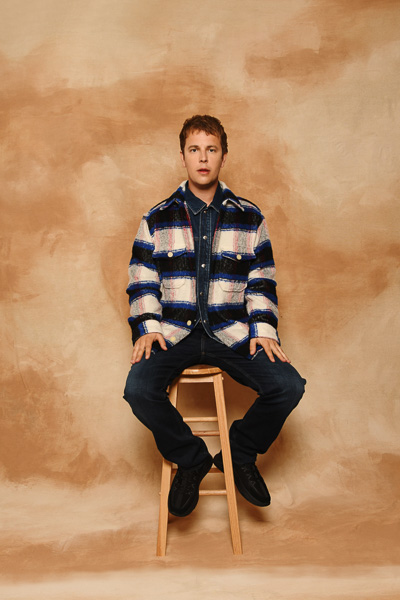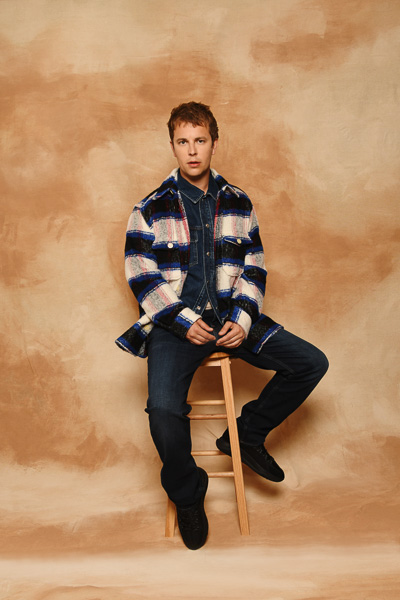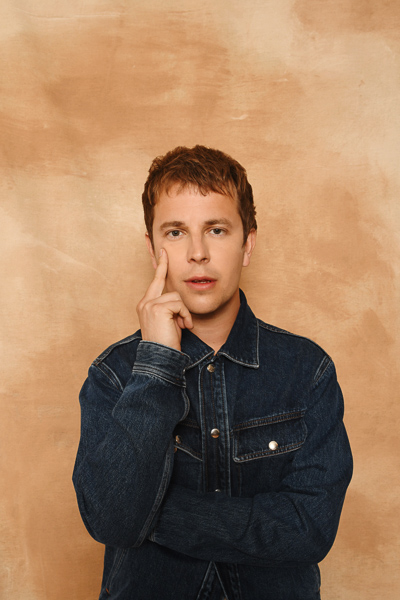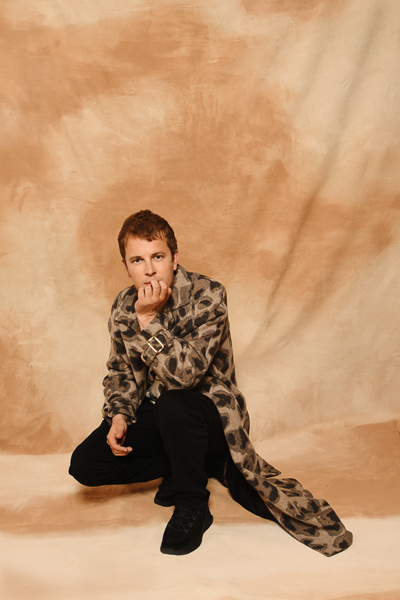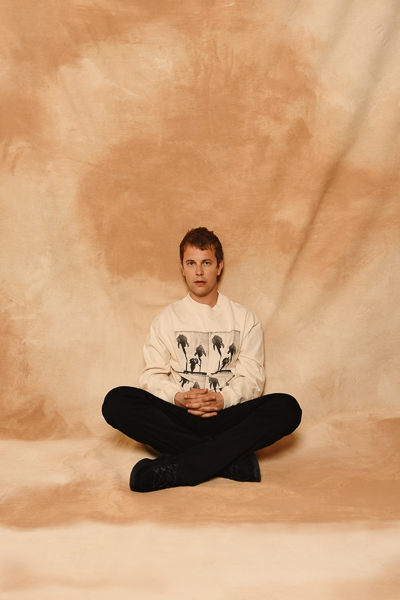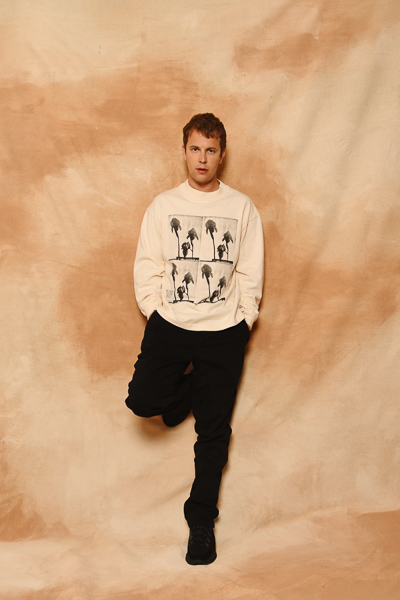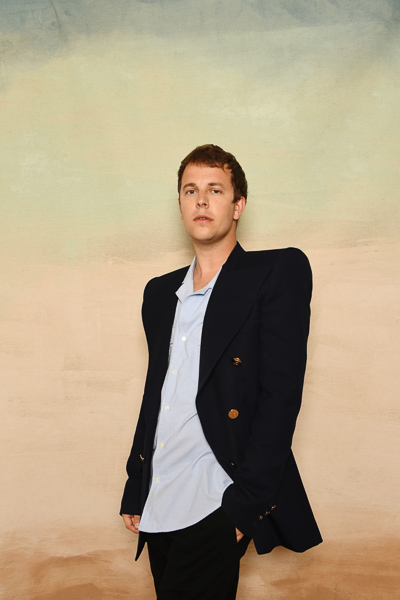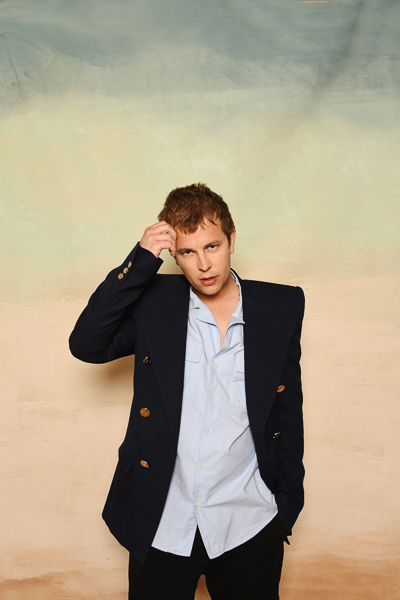Tom Odell FAULT Magazine Cover shoot & Interview
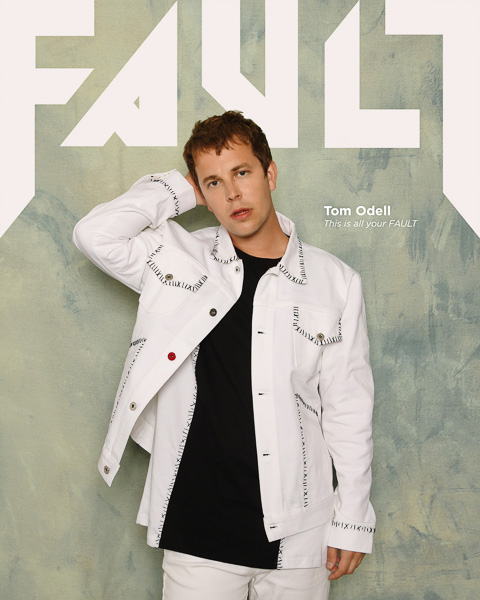
Photography – Jack Alexander using Broncolor
Stylist Olga Timofejeva at The ONLY Agency @theonly.agency
Stylist assistant Vania Monterio
Grooming Nadia Altinbas @The ONLY Agency
Set Design – Rolina Blok
Words: Luke Pettican
Currently, within the music industry, it’s arguably never been easier to have a viral moment but longevity is still elusive for most. Following up a breakout album can often either see an artist lose the very essence of what made them so beloved or produce a pale imitation of their earlier work.
Since the release of his much-anticipated debut album in 2013, Odell has never fallen into any of the aforementioned categories. While the sonics of his work have evolved, his unparalleled talent for crafting poignant lyricism that’s astonishingly affecting has never changed. Even with just his two latest single releases “Money” and “Lose You Again”, Odell has evidenced his unrelenting willingness to experiment with his sound to elevate the stirring emotional sentiments embodied within his work.
Having just released his latest single “Lose You Again”, we caught up with Odell to discuss his highly anticipated fourth album, the music industry and of course, his FAULTs.
Lose you again’ is such a beautifully affecting and poignant song. Could you tell us about that track?
Thank you, I love the song too. It’s got some magic to it. I wrote it in a guitar shop in Boston before the pandemic. I was hungover, having gone out in New York the night before. It was one of those songs that just arrived out of nowhere. Perhaps it had been waiting for whoever was gonna pick uap that guitar. I ran across the road to the venue we were playing and showed it to my band. They loved it, so I went back to the dressing room and finished writing it. And that was pretty much it until I started recording it last year. It was fucking difficult to record, the good ones often are, and with the guys, I made the record with, we tried many different iterations of the song, maybe a year later landing on the one it ended up as…
‘Numb’ was the first track you released from your upcoming album. Why did that feel like the right track to be the first single?
It was February, three or four months into lockdown number 3, and I was looking around me and thinking maybe a few people might be able to get with a track called ’numb’! So we went with it first! Maybe it was a good introduction to this new body of work of mine, which is quite different to anything I’ve done before. I wrote the song back in 2019, at a low point of my struggle with chronic anxiety. The verse lyrics are fragments of a note I found in my iPhone. A therapist had told me to write stuff down. It annoyed me at the time because I was like, that’s what I do for a fucking job, write things down. Anyway, it didn’t solve the anxiety, but it brought me this song.
Left: Jumper Isabel Marant; Jeans Isabel Marant; Trainers Lanvin
Right: Jacket MJB (Marc Jacques Burton); T- shirt MJB (Marc Jacques Burton); Jeans 7 for All Mankind; Trainers Sans Matin
You first released music in 2012, and reflecting on the past nine years, what are the biggest changes you’ve noticed within the music industry? Do you feel that there’s a greater understanding from labels and the wider industry of the toll that being within the music industry can take on your mental health?
The music industry I am a very small part of today is unrecognisable from the one I entered. The obvious changes which no one needs me to point out are streaming and social media. I think there are so many positives to where it is heading. It is making music so much more diverse and varied. No longer does pop sound homogenous, it’s a wild melting pot, with every single genre out there being thrown in. I love it. Pop music has never been better. The downsides are songwriters not getting paid properly. Which being one myself, is obviously a little bit fucking annoying. Particularly when you find out that labels are making a fortune. But honestly, whilst there are things to fix, I think the direction the music industry is pointing toward is so exciting.
In answer to the second part of your question, put simply no. I think a lot of work needs to be done in terms of looking after artists mental health. Every couple of years a new documentary comes out about a big pop star getting exploited by those around them. Having been in this industry for nearly ten years, those documentaries never surprise me at all, and unfortunately, I think we can expect more of them to come. I think a lot of us artists, as songwriters, we are vulnerable people. And I think the music biz is very good at channelling those vulnerabilities into something profitable. But they are not so good at making sure those vulnerable people are actually okay in the process.
Sonically this album is different to anything you’ve put out before. Was there any apprehension about the fan’s reaction to the shift in sound?
Not really. I love my fans. I can say with absolute earnestness they are a big part of my life. Some of them have been coming to shows for nearly a decade! Some of the young kids that used to stand outside the venue in the freezing cold eight years ago, well, they are grown-ups now. And it’s been amazing to be a part of their lives. We have a unique relationship. And as a community, it is growing!! Lots at the moment! The only agreement we have is to keep being honest. And it’s amazing what happens when you are honest. People start being honest back to you. And then anything is possible…
Arguably from what we’ve heard so far, this album fits much more into the pop realm than some of your other work. With that being said, recently, the historically restrictive boundaries of pop music are being continually broken. How would you say the genre has inspired or influenced your upcoming album?
Pop is all I have listened to for 18 months. I get so excited every Friday when all the new releases come out. I can’t think of another time I’ve felt like that about pop music. Maybe even when I was growing up and learning to write songs, I would have said ‘I don’t like pop music. But now it is everything to me. There is so much music in pop now. By music I mean chords, and melodies. Complex rhythms. And lyrics! My god. You can sing about anything now. The more honest, the better. I listened to that new song by Billie Eilish, Your Power, I was like, what a glory age of music we are living through when a song so raw and unpolished is considered pop. Billie has done so much for pop music. She’s made it fucking good again. Hip hop’s done even more. Hip hop’s influence on pop music is monumental. Hip hop made it real again. We’ve got to be so grateful for that.
Left: Jeans 7 for All Mankind; T-shirt All Saints; Denim jacket The Kooples
Right: Jeans 7 for All Mankind; ; Top The Kooples; Coat Edward Crutchley
‘money’ sees you dissect how capitalism has facilitated a hyper-individualistic culture, resulting in a society riddled with extreme competitiveness and apathy. It’s also insanely catchy. What led you to pen the track and vocalise your frustrations in this way?
I was living in LA at the end of 2019. I was feeling pretty down. And LA is quite a place to feel down. I was in this little wooden house just off Abbott Kinney Boulevard. To anyone that knows LA will know it’s a pretty affluent area. But simultaneously an area with a lot of homelessness. I guess people that live there for a while get used to it, but to me, it was utter madness. How could some of the wealthiest people in the world live so harmoniously amongst the poorest. And do nothing about it.
I guess as I’ve read more, and travelled more, gotten older, the growing inequality of wealth of the planet seems to me to be the most concerning trends. The rich get rich. The poor get poorer. By the time you finish this paragraph, Jeff Bezos makes another million dollars. It’s terrifying. It doesn’t matter how much money you have, we all are constantly made to feel if we made more, we’d be happier. It’s a huge cause of anxiety for so many people. Including myself. It felt liberating to write a song about it. Particularly one that is kinda fun like money. I hope people understand it’s satire.
Your fans are so passionate about your songs and seem to quickly attribute their own meanings to them. Are you ever wary of explaining a song’s origin or meaning? In case it might influence sometimes their own personal interpretations.
Not really. I think the best songs always tap into some kind of universal truth. It is the sentiment that is heard, the essence, rather than the detail. And I think that is what draws people to good songs. That’s why songs like Strange Fruit or Hallelujah or Blowin’ In The Wind, songs that are decades old, still feel relevant today.
The production embodied within your songs always perfectly complements the lyrical sentiment. Could you tell us about the process of crafting production to elevate the song’s impact?
It takes me a while to record songs. It takes me a while to write them too. That’s why there is often a bit of a gap between albums. I don’t know how people do it faster. Hats off to them. Sometimes I will record a song 4 or 5 times in completely different ways before I feel happy with it. I am searching for the feeling I had when I first wrote it. And I only feel happy with it when I stop hearing myself in it. When I stop hearing what I am doing wrong. When I listen to it like I would a record I didn’t make. Sometimes it never happens, and the record never comes out. It’s painful at moments. Working for two years on 45 minutes of audio. Sometimes I wonder If I’m going mad.
Your music is often very introspective and self-aware. During the creative process, are you ever thinking about how fans or listeners will interpret your music? Or are you purely looking inwardly?
I really try not to. The only ears I can truly trust are my own. So I try to use those the best I can. I trust my instinct. I’ve put out songs that haven’t really connected before, and it feels fine if I love it. It feels terrible if I didn’t love it too. Then I’m like, well, what was the point in that?
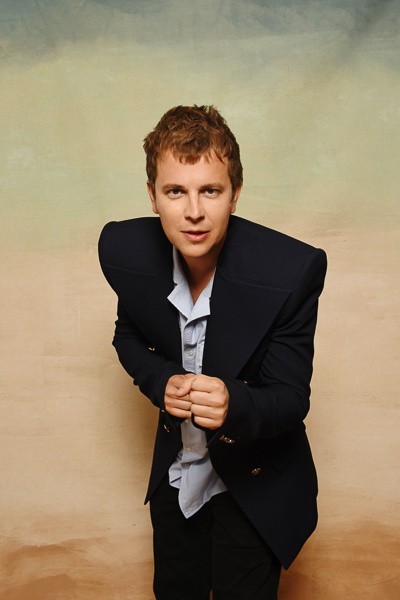
What is your FAULT?
Where do I begin.
